CONCACAF
The Confederation of North, Central American and Caribbean Association Football[1][2] (CONCACAF /ˈkɒnkəkæf/ KON-kə-kaf; typeset for branding purposes since 2018 as Concacaf)[3] is one of FIFA's six continental governing bodies for association football. Its 41 members include nations and territories in North America, including Central America and the Caribbean. Three geographically South American entities are also members — Guyana, Suriname, and the French overseas department of French Guiana.[4] CONCACAF's primary functions are to organize competitions for national teams and clubs, and to conduct World Cup and Women's World Cup qualifying tournaments.
 | |
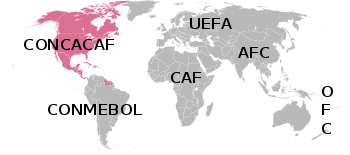 | |
| Abbreviation | CONCACAF |
|---|---|
| Formation | 18 September 1961 |
| Founded at | Mexico City, Mexico |
| Type | Sports organisation |
| Headquarters | Miami, Florida, United States |
| Coordinates | 25.773°N 80.138°W |
Region | North America, Central America and the Caribbean |
Membership | 41 member associations |
Official language | |
| Victor Montagliani | |
General Secretary | Philippe Moggio |
Parent organization | FIFA |
| Affiliations | |
| Website | www.concacaf.com |
| FIFA confederations |
|---|
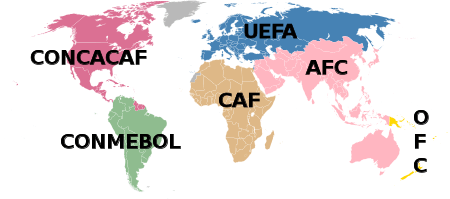 |
| AFC, CAF, CONCACAF |
| CONMEBOL, OFC, UEFA |
CONCACAF was founded in its current form on 18 September 1961 in Mexico City, Mexico, with the merger of the NAFC and the CCCF, which made it one of the then five, now six continental confederations affiliated with FIFA. Canada, Costa Rica, Cuba, El Salvador, Guatemala, Haiti, Honduras, Mexico, Netherlands Antilles (Curaçao), Nicaragua, Panama, Suriname and United States were founding members.[5]
CONCACAF is the third-most successful FIFA confederation. Mexico dominated CONCACAF men's competition early on and has since won the most Gold Cups since the beginning of the tournament in its current format. The Mexico national football team is the only CONCACAF team to win an official FIFA tournament by winning the 1999 FIFA Confederations Cup. Mexico and the U.S. have won all but one of the editions of the CONCACAF Gold Cup. In recent years Costa Rica and Panama have become powers in the region; in 2014, Costa Rica became the 4th CONCACAF country after the United States, Cuba, and Mexico to make the World Cup quarterfinals, while Panama became the eleventh country from the confederation to participate in the World Cup in 2018. The United States has been very successful in the women's game, being the only CONCACAF member to win all three major worldwide competitions in women's football — the World Cup (4), the Olympics (4), and the Algarve Cup (10). Canada is the only other member to win at least one of the major competitions, winning the Algarve Cup in 2016.
Governance
CONCACAF is led by a General Secretary, Executive Committee, Congress, and several standing committees. The Executive Committee is composed of eight members — one president, three vice-presidents, three members, and one female member.[6] Each of the three geographic zones in CONCACAF is represented by one vice-president and one member. The Executive Committee carries out the various statutes, regulations, and resolutions.
Leadership
.svg.png)
The first leader of CONCACAF was Costa Rican Ramón Coll Jaumet; he had overseen the merger between the North American Football Confederation (NAFC) and the Confederación Centroamericana y del Caribe de Fútbol (CCCF). In 1969, he was succeeded in the role by Mexican Joaquín Soria Terrazas, who served as president for 21 years.
His successor Jack Warner was the CONCACAF president from 1990 to 2011, also for 21 years. Warner was suspended as president on 30 May 2011 due to his temporary suspension from football-related activity by FIFA following corruption allegations.[7] Chuck Blazer was the General Secretary during the same period.[8]
On 20 June 2011, Jack Warner resigned from the presidency of CONCACAF, and removed himself from all participation in football, in the wake of the corruption investigation resulting from 10 May 2011 meeting of the Caribbean Football Union.[9] The vice-president of CONCACAF, Alfredo Hawit, acted as president until May 2012.[10]
In May 2012, Cayman Islands banker Jeffrey Webb was installed as President of CONCACAF. On 27 May 2015, Webb was arrested in Zurich, Switzerland on corruption charges in the U.S.
Victor Montagliani, leader of the Canadian Soccer Association, was elected as president of CONCACAF in May 2016.[11]
Current leaders
| Name[12][13] | Nation | Position |
|---|---|---|
| Victor Montagliani | President | |
| Rodolfo Villalobos | Vice president | |
| Sunil Gulati | Vice president | |
| Jorge Salomon | Member | |
| Randolph Harris | Vice president | |
| Yon de Luisa | Vice president | |
| Philippe Moggio | General secretary | |
| Sonia Bien-Aime | Member |
Corporate structure
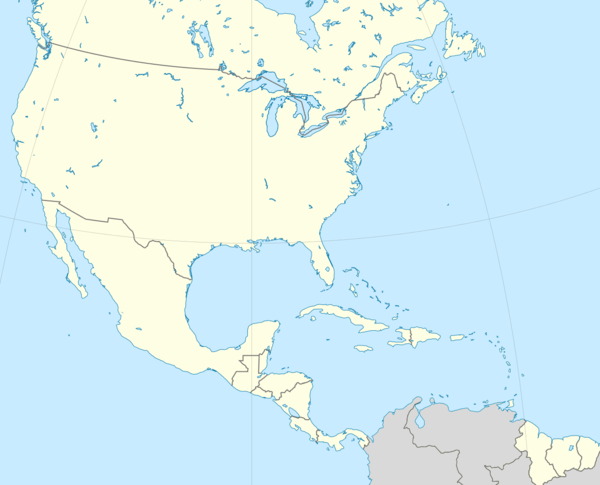
CONCACAF is a non-profit company registered in Nassau, Bahamas.
The headquarters of the CONCACAF are located in Miami, United States. Previously it had been the Admiral Financial Center, George Town, Cayman Islands—the home city of former CONCACAF president Jeffrey Webb and prior to that, they were based in Port of Spain, Trinidad and Tobago under the presidency of Jack Warner. The administration office of CONCACAF was previously located in Trump Tower, New York when Chuck Blazer was the General Secretary.
In February 2017, a satellite office was opened in Kingston, Jamaica.[14] In July 2017, a second satellite office was opened in Guatemala City, which is shared with UNCAF,[15] and most recently another satellite office for the FIFA Caribbean Development Office[16][17] was opened in Bridgetown, Barbados' suburb of Welches.[18][19]
Members
CONCACAF has 41 member associations:[20]
- 28 from the Caribbean
- 7 from Central America
- 3 from North America
- 3 from South America
| Code | Association | National teams | Founded | FIFA affiliation | CONCACAF affiliation | IOC member |
|---|---|---|---|---|---|---|
| North American Zone (NAFU) | ||||||
| CAN | (M, W) | 1912 | 1913 | 1961 | Yes | |
| MEX | (M, W) | 1922 | 1929 | 1961 | Yes | |
| USA | (M, W) | 1913 | 1914 | 1961 | Yes | |
| Central American Zone (UNCAF) | ||||||
| BLZ | (M, W) | 1980 | 1986 | 1986 | Yes | |
| CRC | (M, W) | 1921 | 1927 | 1961 | Yes | |
| SLV | (M, W) | 1935 | 1938 | 1961 | Yes | |
| GUA | (M, W) | 1919 | 1946 | 1961 | Yes | |
| HON | (M, W) | 1935 | 1951 | 1961 | Yes | |
| NCA | (M, W) | 1931 | 1950 | 1961 | Yes | |
| PAN | (M, W) | 1937 | 1938 | 1961 | Yes | |
| Caribbean Zone (CFU) | ||||||
| AIA | (M, W) | 1990 | 1996 | 1996 | No | |
| ATG | (M, W) | 1928 | 1972 | between 1961 and 1973 | Yes | |
| ARU | (M, W) | 1932 | 1988 | 1986 | Yes | |
| BAH | (M, W) | 1967 | 1968 | between 1961 and 1973 | Yes | |
| BRB | (M, W) | 1910 | 1968 | 1967 | Yes | |
| BER | (M, W) | 1928 | 1962 | 1967 | Yes | |
| BOE | (M, W) | 1960 | N/A | 2014 | No | |
| VGB | (M, W) | 1974 | 1996 | 1996 | Yes | |
| CAY | (M, W) | 1966 | 1992 | 1990 | Yes | |
| CUB | (M, W) | 1924 | 1929 | 1961 | Yes | |
| CUW | (M, W) | 1921 | 1932 | 1961 | No | |
| DMA | (M, W) | 1970 | 1994 | 1994 | Yes | |
| DOM | (M, W) | 1953 | 1958 | 1964 | Yes | |
| GUF | (M, W) | 1962 | N/A | 2013 | No | |
| GRN | (M, W) | 1924 | 1978 | 1978 | Yes | |
| GLP | (M, W) | 1958 | N/A | 2013 | No | |
| GUY | (M, W) | 1902 | 1970 | between 1969 and 1971 | Yes | |
| HAI | (M, W) | 1904 | 1934 | 1961 | Yes | |
| JAM | (M, W) | 1910 | 1962 | 1963 | Yes | |
| MTQ | (M, W) | 1953 | N/A | 2013 | No | |
| MSR | (M, W) | 1994 | 1996 | 1996 | No | |
| PUR | (M, W) | 1940 | 1960 | 1964 | Yes | |
| SKN | (M, W) | 1932 | 1992 | 1992 | Yes | |
| LCA | (M, W) | 1979 | 1988 | 1986 | Yes | |
| SMN | (M, W) | 1999 | N/A | 2013 | No | |
| VIN | (M, W) | 1979 | 1988 | 1986 | Yes | |
| SMA | (M, W) | 1986 | N/A | 2013 | No | |
| SUR | (M, W) | 1920 | 1929 | 1961 | Yes | |
| TRI | (M, W) | 1908 | 1964 | 1964 | Yes | |
| TCA | (M, W) | 1996 | 1998 | 1996 | No | |
| VIR | (M, W) | 1992 | 1998 | 1987 | Yes | |
M = Men's National Team. W = Women's National Team
N/A: not applicable, not available or no answer.
- Inside the North American zone, but CFU member.
- Full CONCACAF member, but not a FIFA member.
- South American country or territory, but CONCACAF member.
Bonaire were promoted from an association member to a full member at the XXIX Ordinary CONCACAF Congress in São Paulo on 10 June 2014.
Teams not affiliated to the IOC are not eligible to participate in the Summer Olympics football tournament, as a result, they do not participate in the CONCACAF Men's Pre-Olympic Tournament or the CONCACAF Women's Pre-Olympic Tournament.
Potential future members
The Football Association of Saint Pierre and Miquelon is expected to build a suitable venue and become members of CONCACAF in September 2021.[21][22]
Membership relation
Elections at the CONCACAF Congress are mandated with a one-member, one-vote rule. The North American Football Union is the smallest association union in the region with only three members, but its nations have strong commercial and marketing support from sponsors and they are the most populous nations in the region.
The Caribbean Football Union has the ability to outvote NAFU and UNCAF with less than half of its membership. Consequently, there is a fractious relationship between members of CFU, UNCAF and NAFU. This provoked former Acting-President Alfredo Hawit to lobby for the CONCACAF Presidency to be rotated between the three unions in CONCACAF in 2011.
Trinidad's Jack Warner presided over CONCACAF for 21 years, and there was little that non-Caribbean nations could do to elect an alternative. Under Warner, the CFU members voted together as a unit with Warner acting as a party whip. It happened with such regularity that sports political commentators referred to the CFU votes as the "Caribbean bloc" vote. Warner rejected the idea in 1993 of merging several smaller nations' national teams into a Pan-Caribbean team. His reasoning was that the nations were more powerful politically when separate than when together. He commented that "being small is never a liability in this sport".[23]
Competitions
CONCACAF competitions
The Gold Cup and the Champions League are the two most visible CONCACAF tournaments.[20]
National teams
|
Clubs
|
Defunct competitions
- NAFC Championship (1947, 1949)
- CCCF Championship (1941–1961)
- CONCACAF Championship (1963–1989)
- CFU Championship (1978–1985)
- North American Nations Cup (1990, 1991)
- CONCACAF Champions' Cup
- CONCACAF Giants Cup
- SuperLiga – North America regional championship
- Copa Interclubes UNCAF – Central America regional championship
- CONCACAF Cup Winners Cup
- CONCACAF Cup
- Interamerican Cup – intercontinental with CONMEBOL region
CONCACAF Gold Cup
The CONCACAF Gold Cup, held since 1991, is the main association football competition of the men's national football teams governed by CONCACAF. The Gold Cup is CONCACAF's flagship competition, and generates a significant part of CONCACAF's revenue.[24]
The Gold Cup determines the regional champion of North America, Central America, and the Caribbean, and is held every two years. Starting with the 2019 edition, 16 teams compete for the Gold Cup (up from 12).
CONCACAF Nations League
All men's national teams of member associations take part in the CONCACAF Nations League, a competition created in 2017. National teams are placed into tiers and play matches against teams in the same tier. At the end of each season, teams can be promoted to the tier above or relegated to the tier below depending upon their results.
CONCACAF Champions League
The CONCACAF Champions League, originally known as the CONCACAF Champions' Cup, is an annual continental club association football competition organized by CONCACAF since 1962 for the top football clubs in the region. It is the most prestigious international club competition in North American football. The winner of the Champions League qualifies for the FIFA Club World Cup. The knockout tournament spans February through April.[25]
Since 2018, 16 teams compete in each Champions League; at least 9 from North America, at least 1 from the Caribbean and the remaining 6 from varying CONCACAF countries. The North American teams from Major League Soccer and Liga MX qualify through their national leagues or other national tournaments, while the Caribbean team qualifies through the Caribbean Club Championship; the remaining six teams qualify through the CONCACAF League.
The title has been won by 27 clubs, 17 of which have won the title more than once. Mexican clubs have accumulated the highest number of victories, with 35 titles. The second most successful league has been Costa Rica's Primera División with six titles in total. The most successful club is Club América from Mexico, with seven titles; fellow Mexico side Cruz Azul is just behind with six.
CONCACAF League
Eighteen clubs from Central America, three from the Caribbean, and one from Canada compete in the 2017-established CONCACAF League. The top six teams of the competition are awarded a place in the following year's CONCACAF Champions League.
Current title holders
CONMEBOL tournaments
The following CONMEBOL tournaments have had CONCACAF competitors:
National teams
Clubs
- Copa Libertadores – (1998–2017)
- Copa Sudamericana – (2005–2008)
- Copa Merconorte – (2000–2001) (defunct)
Rankings
Men's national teams
FIFA World RankingsRankings are calculated by FIFA.
|
Top ranked men's national teams by FIFA
|
CONCACAF Ranking IndexThe Ranking Index is calculated by CONCACAF.[26]
Women's national teamsFIFA Women's World Rankings
Top ranked women's national teams by FIFA
|
Men's Futsal
| CONCACAF | FIFA | Country | Points | +/- |
|---|
Women's Futsal
| CONCACAF | FIFA | Country | Points | +/- |
|---|
Beach soccer national teams
Rankings are calculated by Beach Soccer Worldwide (BSWW). Top ten, last updated 13 March 2018
| CCF | BSWW | Country | Points |
|---|---|---|---|
| 1 | 13 | 981 | |
| 2 | 18 | 740 | |
| 3 | 22 | 637 | |
| 4 | 29 | 484 | |
| 5 | 35 | 365 | |
| 6 | 43 | 287 | |
| 7 | 53 | 194 | |
| 8 | 56 | 186 | |
| 9 | 70 | 110 | |
| 10 | 73 | 81 |
Corruption
At the CONCACAF Congress in May 2012 in Budapest, Hungary, legal counsel John P. Collins informed the members of CONCACAF of several financial irregularities. Collins revealed that Jack Warner, the former CONCACAF President, had registered the $22 million 'Dr. João Havelange Centre of Excellence' development in Port-of-Spain under the name of two companies that Warner owned.[27] In addition, Warner had secured a mortgage against the asset in 2007 which the CONCACAF members were also unaware of; the mortgage was co-signed by Lisle Austin, a former vice-president of CONCACAF.[27] The loan defaulted.
Collins also revealed that CONCACAF, despite most of its income coming from the United States, had not paid any tax to the Internal Revenue Service since at least 2007 and had never filed a return in the United States.[28] Although CONCACAF is a registered non-profit organization in the Bahamas and headquartered in Port-of-Spain, Trinidad, they have an administration office in New York, and BDO and CONCACAF invited the IRS to investigate potential liabilities. It is thought that CONCACAF may have to pay up to $2 million plus penalties.
Chuck Blazer stated that a full financial audit into CONCACAF by New-York based consultancy BDO was delayed due to the actions of Jack Warner and his personal accountant, and the accounts could not be "signed off" as a consequence.[28]
In addition, Blazer is to sue CONCACAF for unpaid commission of sponsorship and marketing deals which he had made in 2010 during his time as General Secretary.[27] Blazer received a 10% commission on any deal that he made on behalf of CONCACAF.[29]
The Bermuda FA asked members of CONCACAF to lobby FIFA to remove Blazer from his position on the FIFA Executive Committee. Blazer suggested that it was less to do with financial irregularities and more for his role in the removal of Jack Warner in the Caribbean Football Union corruption scandal: "I spent 21 years building the confederation and its competitions and its revenues and I'm the one responsible for its good levels of income . . . I think this is a reflection of those who were angry at me having caused the action against Warner. This is also a reaction by people who have their own agenda."[29]
Jack Warner presided over CONCACAF for 21 years. Warner was one of the most controversial figures in world football. Warner was suspended as president on 30 May 2011 due to his temporary suspension from football-related activity by FIFA following corruption allegations.[7] A power struggle developed at CONCACAF following the allegations against Warner. The allegations against Warner were reported to the FIFA Ethics Committee by Chuck Blazer, the secretary general of CONCACAF. The acting president of CONCACAF, Lisle Austin, sent Blazer a letter saying he was "terminated as general secretary with immediate effect".[30] Austin described Blazer's actions as "inexcusable and a gross misconduct of duty and judgement" and said the American was no longer fit to hold the post.[31] The executive committee of CONCACAF later issued a statement saying that Austin did not have the authority to fire Blazer, and the decision was unauthorized.[30] On 20 June 2011, Jack Warner resigned from the presidency of CONCACAF, all posts with FIFA, and removed himself from all participation in football, in the wake of the corruption investigation resulting from 10 May 2011 meeting of the Caribbean Football Union.[9] The vice-president of CONCACAF, Alfredo Hawit, acted as president until May 2012.[10]
Indicted CONCACAF individuals
Several CONCACAF officials have been indicted.[32][33]
| Name | Nationality | FIFA position | CONCACAF position | Regional or national position | Status | Ref. |
|---|---|---|---|---|---|---|
| Chuck Blazer | Former General Secretary | Guilty plea | [32][33] | |||
| Alfredo Hawit | Vice-President | President | Arrested | [34] | ||
| Eduardo Li | member-elect of executive committee | member of executive committee | President of the Costa Rican Football Federation |
Arrested | [32][33] | |
| Costas Takkas | Attaché to the President | Former General Secretary of the Cayman Islands Football Association |
Arrested | [32][33] | ||
| Daryan Warner | Son of Jack Warner | Guilty plea | [32][33] | |||
| Daryll Warner | former development officer | Son of Jack Warner | Guilty plea | [32][33] | ||
| Jack Warner | Former Vice President | former President | former Minister of National Security | Bailed | [35] | |
| Jeffrey Webb | Vice President | President | President of the Cayman Islands Football Association |
Bailed | [32][33] |
Hall of fame
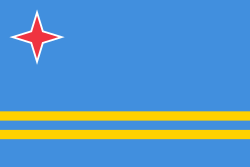
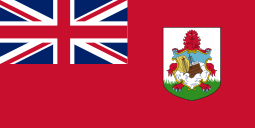


.svg.png)
.svg.png)
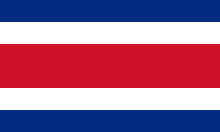



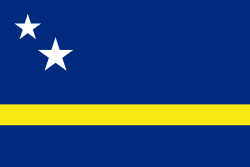
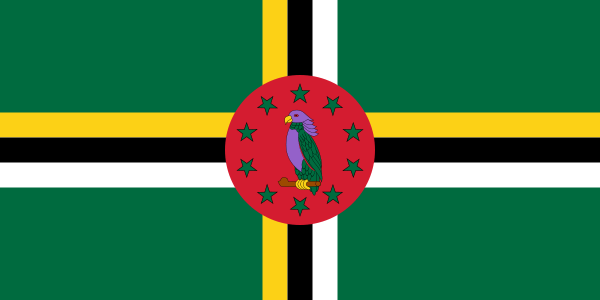


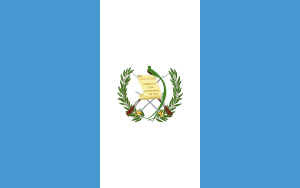



.svg.png)
.svg.png)
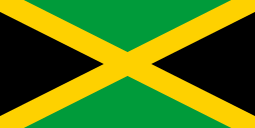










.svg.png)


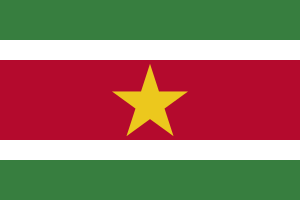




Source:[36]
- Inducted in 2015
- Inducted in 2013
Team of the Century
The CONCACAF Team of the Century was announced as part of the festivities associated with the 1998 FIFA World Cup in France.[37]
- GK — Antonio Carbajal (Mexico)
- DF — Marcelo Balboa (USA)
- DF — Gilberto Yearwood (Honduras)
- DF — Bruce Wilson (Canada)
- DF — Gustavo Pena (Mexico)
- MF — Ramon Ramirez (Mexico)
- MF — Magico Gonzalez (El Salvador)
- MF — Tab Ramos (USA)
- FW — Julio Cesar Dely Valdes (Panama)
- FW — Hugo Sanchez (Mexico)
- FW — Hernan Medford (Costa Rica)
President's award
- 2013

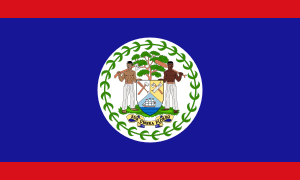
- 2015


Major tournaments
- Legend
- 1st – Champion
- 2nd – Runner-up
- 3rd – Third place[40]
- 4th – Fourth place
- QF – Quarterfinals
- R16 – Round of 16 (since 1986: knockout round of 16)
- GS – Group stage (in the 1950, 1974, 1978, and 1982 tournaments, which had two group stages, this refers to the first group stage)
- 1S – First knockout stage (1934–1938 Single-elimination tournament)
- • — Did not qualify
- — Did not enter / withdrew / banned
- — Hosts
For each tournament, the flag of the host country and the number of teams in each finals tournament (in brackets) are shown.
FIFA World Cup
Only eleven CONCACAF members have ever reached the FIFA World Cup since its inception in 1930, six of them accomplishing the feat only once. No team from the region has ever reached the final at the World Cup, but the United States reached the semifinals in the inaugural edition, for which they were awarded third place. CONCACAF members have reached the quarterfinals five times: Cuba in 1938, Mexico as hosts in 1970 and 1986, the United States in 2002, and most recently, Costa Rica in 2014. Jamaica is the smallest country to ever win a World Cup match, by virtue of their 2–1 victory over Japan in 1998.
The following table shows the CONCACAF representatives at each edition of the World Cup, sorted by number of appearances:
| FIFA World Cup record | |||||||||||||||||||||||||
|---|---|---|---|---|---|---|---|---|---|---|---|---|---|---|---|---|---|---|---|---|---|---|---|---|---|
| Team | 1930 (13) |
1934 (16) |
1938 (15) |
1950 (13) |
1954 (16) |
1958 (16) |
1962 (16) |
1966 (16) |
1970 (16) |
1974 (16) |
1978 (16) |
1982 (24) |
1986 (24) |
1990 (24) |
1994 (24) |
1998 (32) |
2002 (32) |
2006 (32) |
2010 (32) |
2014 (32) |
2018 (32) |
2022 (32) |
2026 (48) |
Years | inclusive WC Qual. |
| GS | • | GS | GS | GS | GS | GS | QF | • | GS | • | QF | R16 | R16 | R16 | R16 | R16 | R16 | R16 | 16 | 19 | |||||
| 3rd | R16 | GS | • | • | • | • | • | • | • | • | • | GS | R16 | GS | QF | GS | R16 | R16 | • | 10 | 20 | ||||
| • | • | • | • | • | • | • | • | R16 | • | • | GS | GS | • | QF | GS | 5 | 16 | ||||||||
| • | • | • | • | GS | • | • | • | • | • | • | GS | GS | • | 3 | 14 | ||||||||||
| GS | • | • | GS | • | • | • | • | • | • | • | • | • | 2 | 13 | |||||||||||
| • | QF | • | • | • | • | • | • | • | • | • | • | • | 1 | 13 | |||||||||||
| • | • | • | GS | • | • | • | • | • | • | • | • | • | • | 1 | 14 | ||||||||||
| • | • | • | • | • | GS | • | • | • | • | • | • | • | • | 1 | 14 | ||||||||||
| • | • | • | • | • | • | GS | • | • | • | • | • | 1 | 12 | ||||||||||||
| • | • | • | • | • | • | • | • | • | • | GS | • | • | • | 1 | 14 | ||||||||||
| • | • | • | • | • | • | • | • | • | • | GS | 1 | 11 | |||||||||||||
| Total (11 teams) | 2 | 1 | 1 | 2 | 1 | 1 | 1 | 1 | 2 | 1 | 1 | 2 | 2 | 2 | 2 | 3 | 3 | 4 | 3 | 4 | 3 | 3 or 4 | TBD | 42 | – |
FIFA World Cup hosting
CONCACAF nations have hosted the FIFA World Cup three times.
The 1970 FIFA World Cup took place in Mexico, the first World Cup tournament to be staged in North America, and the first held outside Europe and South America. Mexico was chosen as the host nation in 1964 by FIFA's congress ahead of the only other submitted bid from Argentina.[41] The tournament was won by Brazil. The victorious team led by Carlos Alberto, and featuring players such as Pelé, Gérson, Jairzinho, Rivelino, and Tostão, is often cited as the greatest-ever World Cup team.[42][43][44] They achieved a perfect record of wins in all six games in the finals.[45] Despite the issues of altitude and high temperature, the finals produced attacking football which created an average goals per game record not since bettered by any subsequent World Cup Finals.[46][47][48] The 1970 Finals attracted a new record television audience for the FIFA World Cup[49] and, for the first time, in colour.[50][51]
In 1986, Mexico became the first country to host the FIFA World Cup twice when it stepped in to stage the 1986 FIFA World Cup after the original host selection, Colombia, suffered financial problems.[41] Colombia was originally chosen as hosts by FIFA in June 1974. However, the Colombian authorities eventually declared in November 1982 that they could not afford to host the World Cup because of economic concerns. Mexico was selected on 20 May 1983 as the replacement hosts, beating the bids of Canada and the United States, and thereby became the first nation to host two World Cups. This second World Cup in Mexico came 16 years after the first one in 1970.
The United States won the right to host the 1994 FIFA World Cup, defeating bids from Brazil and Morocco.[52] The vote was held in Zurich on 4 July 1988, and only took one round with the United States bid receiving a little over half of the votes by the Exco members.[52] FIFA hoped that by staging the world's most prestigious football tournament there, it would lead to a growth of interest in the sport; one condition FIFA imposed was the creation of a professional football league, Major League Soccer, starting in 1996. The U.S. staged a hugely successful tournament, with average attendance of nearly 69,000 breaking a record that surpassed the 1966 FIFA World Cup average attendance of 51,000 thanks to the large seating capacities the American stadiums provided for the spectators in comparison to the smaller venues of Europe and Latin America. To this day, the total attendance for the final tournament of nearly 3.6 million remains the highest in World Cup history, despite the expansion of the competition to 32 teams at the 1998 World Cup.[53][54]
Canada, Mexico, and the United States have won the bidding to host the 2026 FIFA World Cup, competing against a Moroccan bid.[55]
FIFA Women's World Cup
| FIFA Women's World Cup record | |||||||||||
|---|---|---|---|---|---|---|---|---|---|---|---|
| Team | 1991 (12) | 1995 (12) | 1999 (16) | 2003 (16) | 2007 (16) | 2011 (16) | 2015 (24) | 2019 (24) | 2023 (32) | Years | inclusive WC Qual. |
| 1st | 3rd | 1st | 3rd | 3rd | 2nd | 1st | 1st | 8 | 8 | ||
| • | GS | GS | 4th | GS | GS | QF | R16 | 7 | 8 | ||
| • | • | GS | • | • | GS | GS | • | 3 | 8 | ||
| • | • | × | • | • | × | • | GS | 1 | 8 | ||
| • | • | • | • | • | • | GS | • | 1 | 8 | ||
| Total (5 teams) | 1 | 2 | 3 | 2 | 2 | 3 | 4 | 3 | TBD | 20 | – |
Olympic Games for men
| Olympic Games record | |||||||||||||||||||||||||||||
|---|---|---|---|---|---|---|---|---|---|---|---|---|---|---|---|---|---|---|---|---|---|---|---|---|---|---|---|---|---|
| Team | 1900 (3) | 1904 (3) | 1908 (6) | 1912 (11) | 1920 (14) | 1924 (22) | 1928 (17) | 1936 (16) | 1948 (18) | 1952 (25) | 1956 (11) | 1960 (16) | 1964 (14) | 1968 (16) | 1972 (16) | 1976 (13) | 1980 (16) | 1984 (16) | 1988 (16) | 1992 (16) | 1996 (16) | 2000 (16) | 2004 (16) | 2008 (16) | 2012 (16) | 2016 (16) | 2020 (16) | Years | |
| – | 1 | – | – | – | – | – | – | – | – | – | – | – | – | – | 13 | – | 6 | – | – | – | – | – | – | – | – | 3 | |||
| – | – | – | – | – | – | – | – | – | – | – | – | – | – | – | – | 16 | 13 | – | – | – | – | 8 | – | – | – | 3 | |||
| – | – | – | – | – | – | – | – | – | – | – | – | – | – | – | 11 | 7 | – | – | – | – | – | – | – | – | – | – | 2 | ||
| – | – | – | – | – | – | – | – | – | – | – | – | – | 15 | – | – | – | – | – | – | – | – | – | – | – | – | 1 | |||
| – | – | – | – | – | – | – | – | – | – | – | – | – | 8 | – | 10 | – | – | 16 | – | – | – | – | – | – | – | – | 3 | ||
| – | – | – | – | – | – | – | – | – | – | – | – | – | – | – | – | – | – | – | – | – | 10 | – | 16 | 7 | 4 | 4 | |||
| – | – | – | – | – | – | =9 | – | =11 | – | – | – | 11 | 4 | 7 | 9 | – | – | – | 10 | 7 | – | =10 | – | 1 | 9 | 11 | |||
| – | – | – | – | – | – | – | – | – | =14 | – | – | – | – | – | – | – | – | – | – | – | – | – | – | Split into 2 n. | 1 | ||||
| – | 2[56] | 3 | – | – | – | 12 | =9 | =9 | =11 | =17 | =5 | – | – | – | 14 | – | – | 9 | 12 | 9 | 10 | 4 | – | 9 | – | – | 14 | ||
| Total (9 teams) | 0 | 2 | 0 | 0 | 0 | 1 | 2 | 1 | 2 | 2 | 1 | 0 | 1 | 3 | 2 | 4 | 2 | 3 | 2 | 2 | 2 | 2 | 2 | 2 | 2 | 2 | 2 | 44 | |
Olympic Games for women
| Olympic Games record | ||||||||
|---|---|---|---|---|---|---|---|---|
| Team | 1996 (8) | 2000 (8) | 2004 (10) | 2008 (12) | 2012 (12) | 2016 (12) | 2020 (12) | Years |
| – | – | – | 8 | 3 | 3 | q | 4 | |
| – | – | 8 | – | – | – | – | 1 | |
| 1 | 2 | 1 | 1 | 1 | 5 | q | 7 | |
| Total | 1 | 1 | 2 | 2 | 2 | 2 | 2 | 12 |
CONCACAF Gold Cup
| CONCACAF Gold Cup record | |||||||||||||||||
|---|---|---|---|---|---|---|---|---|---|---|---|---|---|---|---|---|---|
| Team | 1991 |
1993 |
1996 |
1998 |
2000 |
2002 |
2003 |
2005 |
2007 |
2009 |
2011 |
2013 |
2015 |
2017 |
2019 |
2021 TBA |
Years |
| North American Football Union Members | |||||||||||||||||
| GS | GS | GS | 1st | 3rd | GS | GS | SF | QF | GS | GS | GS | QF | QF | q | 15 | ||
| 3rd | 1st | 1st | 1st | QF | QF | 1st | QF | 2nd | 1st | 1st | SF | 1st | SF | 1st | q | 16 | |
| 1st | 2nd | 3rd | 2nd | QF | 1st | 3rd | 1st | 1st | 2nd | 2nd | 1st | 4th | 1st | 2nd | q | 16 | |
| Caribbean Football Union Members | |||||||||||||||||
| GS | 1 | ||||||||||||||||
| GS | GS | QF | GS | GS | GS | QF | QF | GS | 9 | ||||||||
| GS | QF | q | 3 | ||||||||||||||
| GS | 1 | ||||||||||||||||
| GS | GS | q | 3 | ||||||||||||||
| SF | QF | GS | 3 | ||||||||||||||
| GS | 1 | ||||||||||||||||
| GS | QF | GS | QF | GS | QF | SF | 7 | ||||||||||
| GS | 3rd | 4th | GS | QF | QF | GS | QF | 2nd | 2nd | SF | q | 12 | |||||
| GS | QF | GS | GS | GS | GS | q | 7 | ||||||||||
| GS | 1 | ||||||||||||||||
| q | 1 | ||||||||||||||||
| GS | GS | GS | SF | GS | GS | GS | QF | QF | GS | 10 | |||||||
| Central American Football Union Members | |||||||||||||||||
| GS | 1 | ||||||||||||||||
| 4th | 3rd | GS | QF | 2nd | SF | QF | QF | SF | QF | QF | QF | SF | QF | q | 15 | ||
| GS | GS | QF | QF | GS | GS | QF | QF | GS | QF | GS | q | 12 | |||||
| GS | 4th | GS | GS | GS | GS | GS | QF | QF | GS | 10 | |||||||
| 2nd | GS | GS | GS | QF | GS | SF | QF | SF | SF | SF | GS | QF | GS | q | 15 | ||
| GS | GS | GS | 3 | ||||||||||||||
| GS | 2nd | QF | QF | SF | 2nd | 3rd | QF | QF | q | 10 | |||||||
| Guest Nations | |||||||||||||||||
| 2nd | 3rd | 2nd | 3 | ||||||||||||||
| 2nd | QF | SF | 3 | ||||||||||||||
| GS | 1 | ||||||||||||||||
| SF | 1 | ||||||||||||||||
| QF | 1 | ||||||||||||||||
| GS | 4th | 2 | |||||||||||||||
| Total | 8 | 8 | 9 | 10 | 12 | 12 | 12 | 12 | 12 | 12 | 12 | 12 | 12 | 12 | 16 | 16 | |
Copa América
Mexico has finished runners up twice and 3rd place three times at the Copa América making El Tri the most successful non-CONMEBOL nation. The US national team have reached the semifinal stage in the South American tournament twice, followed by Honduras who have reached it once. Costa Rica has reached the quarter finals twice.
CONCACAF Women's Championship
| CONCACAF Women's Championship record | ||||||||||||
|---|---|---|---|---|---|---|---|---|---|---|---|---|
| Team | 1991 |
1993 |
1994 |
1998 |
2000 |
2002 |
2006 |
2010 |
2014 |
2018 |
2022 TBA |
Years |
| 2nd | 3rd | 2nd | 1st | 4th | 2nd | 2nd | 1st | — | 2nd | 9 | ||
| GS | — | — | 3rd | GS | 4th | — | 4th | 2nd | GS | 7 | ||
| — | — | — | — | — | — | — | — | — | GS | 1 | ||
| — | — | — | 4th | GS | — | — | GS | GS | — | 4 | ||
| — | — | — | — | — | — | — | GS | — | — | 1 | ||
| 4th | — | — | GS | — | GS | — | GS | GS | — | 5 | ||
| GS | — | 5th | — | — | GS | 4th | — | GS | 3rd | 6 | ||
| GS | — | — | GS | — | — | — | — | GS | — | 3 | ||
| GS | — | 3rd | 2nd | GS | 3rd | 3rd | 2nd | 3rd | GS | 9 | ||
| — | — | — | — | — | GS | GS | — | — | 4th | 3 | ||
| — | — | — | GS | — | — | — | — | — | — | 1 | ||
| 3rd | 4th | 4th | GS | GS | GS | GS | GS | 4th | GS | 10 | ||
| 1st | 1st | 1st | — | 1st | 1st | 1st | 3rd | 1st | 1st | 9 | ||
| Non-CONCACAF Invitees | ||||||||||||
| — | — | — | — | 2nd | — | — | — | — | — | 1 | ||
| — | — | — | — | 3rd | — | — | — | — | — | 1 | ||
| — | 2nd | — | — | — | — | — | — | — | — | 1 | ||
| Total | 8 | 4 | 5 | 8 | 8 | 8 | 6 | 8 | 8 | 8 | – | |
FIFA U-20 World Cup
| FIFA U-20 World Cup record | ||||||||||||||||||||||||
|---|---|---|---|---|---|---|---|---|---|---|---|---|---|---|---|---|---|---|---|---|---|---|---|---|
| Team | 1977 (16) |
1979 (16) |
1981 (16) |
1983 (16) |
1985 (16) |
1987 (16) |
1989 (16) |
1991 (16) |
1993 (16) |
1995 (16) |
1997 (24) |
1999 (24) |
2001 (24) |
2003 (24) |
2005 (24) |
2007 (24) |
2009 (24) |
2011 (24) |
2013 (24) |
2015 (24) |
2017 (24) |
2019 (24) |
2021 (24) |
Years |
| • | R1 | • | • | R1 | R1 | • | • | • | • | R2 | • | R1 | QF | R1 | R1 | • | • | • | • | • | • | 8 | ||
| • | • | • | • | • | • | R1 | • | • | R1 | R1 | R2 | R2 | • | • | R1 | 4th | R2 | • | • | R2 | • | 9 | ||
| • | • | • | • | • | • | • | • | • | • | • | • | • | • | • | • | • | • | R1 | • | • | • | 1 | ||
| • | • | • | • | • | • | • | • | • | • | • | • | • | • | • | • | • | • | R1 | • | • | • | 1 | ||
| • | • | • | • | • | • | • | • | • | • | • | • | • | • | • | • | • | R2 | • | • | • | • | 1 | ||
| R1 | • | • | • | • | • | • | • | • | R1 | • | R1 | • | • | R1 | • | R1 | • | • | R1 | R1 | R1 | 8 | ||
| • | • | • | • | • | • | • | • | • | • | • | • | R1 | • | • | • | • | • | • | • | • | • | 1 | ||
| 2nd | R1 | R1 | R1 | QF | • | × | QF | QF | • | R2 | QF | • | R1 | • | QF | • | 3rd | R2 | R1 | QF | R1 | 16 | ||
| • | • | • | • | • | • | • | • | • | • | • | • | • | R1 | R1 | R1 | • | R1 | • | R1 | • | R2 | 6 | ||
| • | • | • | • | • | R1 | • | • | • | • | • | • | • | • | R1 | • | • | • | • | • | 2 | ||||
| • | • | R1 | R1 | • | R1 | 4th | • | QF | • | R2 | R2 | R2 | QF | R2 | QF | R1 | • | R1 | QF | QF | QF | 16 | ||
| Total | 2 | 2 | 2 | 2 | 2 | 2 | 2 | 2 | 2 | 2 | 4 | 4 | 4 | 4 | 4 | 5 | 4 | 4 | 4 | 4 | 4 | 4 | 4 | 73 |
FIFA U-20 Women's World Cup
| FIFA U-20 Women's World Cup record | |||||||||||
|---|---|---|---|---|---|---|---|---|---|---|---|
| Team | 2002 (12) |
2004 (12) |
2006 (16) |
2008 (16) |
2010 (16) |
2012 (16) |
2014 (16) |
2016 (16) |
2018 (16) |
2020 (16) |
Years |
| 2nd | QF | GS | GS | • | GS | QF | GS | • | • | 7 | |
| • | • | • | • | GS | • | GS | • | • | q | 3 | |
| • | • | • | • | • | • | • | • | GS | • | 1 | |
| GS | • | GS | GS | QF | QF | GS | QF | GS | q | 9 | |
| • | • | • | • | • | • | • | • | • | q | 1 | |
| 1st | 3rd | 4th | 1st | QF | 1st | QF | 4th | GS | q | 10 | |
| Total | 3 | 2 | 3 | 3 | 3 | 3 | 4 | 3 | 3 | 4 | 31 |
FIFA U-17 World Cup
| FIFA U-17 World Cup record | ||||||||||||||||||||
|---|---|---|---|---|---|---|---|---|---|---|---|---|---|---|---|---|---|---|---|---|
| Team | 1985 (16) |
1987 (16) |
1989 (16) |
1991 (16) |
1993 (16) |
1995 (16) |
1997 (16) |
1999 (16) |
2001 (16) |
2003 (16) |
2005 (16) |
2007 (24) |
2009 (24) |
2011 (24) |
2013 (24) |
2015 (24) |
2017 (24) |
2019 (24) |
2021 (24) |
Years |
| • | R1 | R1 | • | R1 | R1 | • | • | • | • | • | • | • | R1 | R1 | • | • | R1 | 7 | ||
| R1 | • | • | • | • | R1 | R1 | • | QF | QF | QF | R2 | R1 | • | • | QF | R1 | • | 10 | ||
| • | • | R1 | R1 | • | • | • | • | • | • | • | • | • | • | • | • | • | • | 2 | ||
| • | • | • | • | • | • | • | • | • | • | • | R1 | • | • | • | • | • | R1 | 2 | ||
| • | • | • | • | • | • | • | • | • | • | • | R1 | R1 | • | QF | R1 | R2 | • | 5 | ||
| • | • | • | • | • | • | • | R1 | • | • | • | • | • | R1 | • | • | • | • | 2 | ||
| R1 | R1 | • | R1 | R1 | • | R1 | QF | • | QF | 1st | • | R2 | 1st | 2nd | 4th | R2 | 2nd | 14 | ||
| • | • | • | • | • | • | • | • | • | • | • | • | • | R2 | R1 | • | • | • | 2 | ||
| • | • | • | • | • | • | • | • | R1 | • | • | R1 | • | • | • | • | • | • | 2 | ||
| R1 | R1 | R1 | QF | QF | R1 | R1 | 4th | R1 | QF | QF | R2 | R2 | R2 | • | R1 | QF | R1 | 17 | ||
| Total | 3 | 3 | 3 | 3 | 3 | 3 | 3 | 2 | 3 | 3 | 3 | 5 | 4 | 5 | 4 | 4 | 4 | 4 | 4 | 66 |
- Note 1: Original hosts Peru were stripped of the right to host the 2019 event in February 2019.[57]
FIFA U-17 Women's World Cup
| FIFA U-17 Women's World Cup record | ||||||||||||||||||||
|---|---|---|---|---|---|---|---|---|---|---|---|---|---|---|---|---|---|---|---|---|
| Team | 2008 (16) |
2010 (16) |
2012 (16) |
2014 (16) |
2016 (16) |
2018 (16) |
2020 (16) |
Years | ||||||||||||
| QF | R1 | QF | QF | GS | 4th | 6 | ||||||||||||||
| R1 | • | • | GS | • | • | 2 | ||||||||||||||
| • | R1 | R1 | QF | QF | 2nd | 5 | ||||||||||||||
| • | R1 | • | • | • | • | 1 | ||||||||||||||
| 2nd | • | R1 | • | GS | GS | 4 | ||||||||||||||
| Total | 3 | 3 | 3 | 3 | 3 | 3 | 3 | 21 | ||||||||||||
FIFA Futsal World Cup
| FIFA Futsal World Cup record | ||||||||||
|---|---|---|---|---|---|---|---|---|---|---|
| Team | 1989 (16) | 1992 (16) | 1996 (16) | 2000 (16) | 2004 (16) | 2008 (20) | 2012 (24) | 2016 (24) | 2020 (24) | Years |
| R1 | 1 | |||||||||
| R1 | R1 | R1 | R2 | 4 | ||||||
| R1 | R1 | R1 | R1 | R1 | 5 | |||||
| R1 | R1 | R1 | R1 | 4 | ||||||
| R1 | 1 | |||||||||
| R2 | R1 | 2 | ||||||||
| 3rd | 2nd | R1 | R2 | R1 | 5 | |||||
| Total | 2 | 2 | 2 | 3 | 2 | 3 | 4 | 4 | 4 | 26 |
FIFA Beach Soccer World Cup
| FIFA Beach Soccer World Cup record | ||||||||||||||||||||||
|---|---|---|---|---|---|---|---|---|---|---|---|---|---|---|---|---|---|---|---|---|---|---|
| Team | 1995 (8) |
1996 (8) |
1997 (8) |
1998 (10) |
1999 (12) |
2000 (12) |
2001 (12) |
2002 (8) |
2003 (8) |
2004 (12) |
2005 (12) |
2006 (16) |
2007 (16) |
2008 (16) |
2009 (16) |
2011 (16) |
2013 (16) |
2015 (16) |
2017 (16) |
2019 (16) |
2021 (16) |
Years |
| • | • | • | • | • | • | • | • | • | • | • | • | • | • | • | • | • | • | R1 11th |
1 | |||
| • | R1 7th |
• | • | QF 7th |
• | • | • | • | • | • | QF 7th |
• | • | • | • | • | • | • | 3 | |||
| • | • | • | • | • | • | • | • | • | • | • | • | • | • | R1 15th |
• | • | R1 16th |
• | 2 | |||
| • | • | • | • | • | • | • | • | • | • | • | • | • | R1 14th |
R1 14th |
4th | QF 6th |
• | • | 4 | |||
| • | • | • | • | • | • | • | • | • | • | • | • | 2nd | R1 11th |
• | QF 8th |
• | R1 15th |
R1 13th |
R1 15th |
6 | ||
| • | • | • | • | • | • | • | • | • | • | • | • | • | • | • | • | • | • | R1 14th |
1 | |||
| 2nd | 4th | 3rd | R1 7th |
QF 6th |
QF 7th |
QF 5th |
• | R1 8th |
R1 10th |
R1 10th |
R1 13th |
R1 13th |
• | • | • | R1 10th |
• | • | R1 14th |
14 | ||
| Total | 1 | 2 | 1 | 1 | 2 | 1 | 1 | 0 | 1 | 1 | 1 | 2 | 2 | 2 | 2 | 2 | 2 | 2 | 3 | 2 | TBD | 31 |
See also
Resolutions
Awards:
|
- List of CONCACAF competitions – current schedule for finals
CONCACAF presidents
- List of Presidents of CONCACAF
Related links
- Timeline of football
- List of association football sub-confederations
- International Federation of Association Football (FIFA)
- Confederacion Centroamericana y del Caribe de Futbol
- North American Football Confederation
- Soccer in Canada
- Soccer in the United States
- Football in Mexico
References
- The organization shall be called "The Confederation of North, Central America and Caribbean Association Football" or "Concacaf" and shall be composed of National Associations belonging to Northern America, Central America and the Caribbean. STATUTES OF THE CONFEDERATION OF NORTH, CENTRAL AMERICA AND CARIBBEAN ASSOCIATION FOOTBALL. Edition 2015. Article 1, Section 1 Archived 5 September 2015 at the Wayback Machine. Retrieved 18 January 2016.
- Spanish: Confederación de Fútbol de Norte, Centroamérica y el Caribe, pronounced [komfeðeɾaˈsjon de ˈfuðβol de ˈnoɾte ˈsentɾoaˈmeɾika j el kaˈɾiβe]; French: Confédération de football d'Amérique du Nord, d'Amérique centrale et des Caraïbes, pronounced [kɔ̃fedeʁasjɔ̃ də futbɔl dameʁik dy nɔʁ dameʁik sɑ̃tʁal e dɛ kaʁaib]. Dutch uses the English name.
- Straus, Brian (7 March 2018). "New-Look Concacaf Unveils Format, Rules for Nations League Competition". SI.com. Retrieved 7 April 2018.
- Concacaf Main | CONCACAF Home | About Us | National Associations Archived 4 October 2012 at the Wayback Machine. Concacaf.com. Retrieved on 14 October 2011.
- "Ramón Coll, electo Presidente de la Confederación de Futbol de América del Norte, América Central y el Caribe". La Nación (Google News Archive). 23 September 1961.
- "Executive Committee". CONCACAF. Archived from the original on 20 January 2015. Retrieved 14 March 2014.
- "Bin Hammam and Warner suspended after FIFA investigation". CNN. 29 May 2011.
- Chuck Blazer resigns CONCACAF post – ESPN / AP, 6 October 2011
- FIFA announces Jack Warner resignation 20 June 2011. Fifa.com (20 June 2011). Retrieved on 14 October 2011.
- "Concacaf Suspends Its Acting President on Eve of Gold Cup". The New York Times. 4 June 2011.
- "Canadian wins CONCACAF presidency". Retrieved 15 June 2017.
- FIFA.com. "FIFA Associations and Confederations – CONCACAF – FIFA.com". FIFA.com. Retrieved 15 June 2017.
- "CONCACAF Council". www.concacaf.com. Retrieved 12 August 2019.
- "CONCACAF opens new office in Caribbean to support growth". www.concacaf.com. 28 February 2017. Retrieved 8 March 2018.
- "New CONCACAF Office Opens in Guatemala". www.concacaf.com. Retrieved 8 March 2018.
- Lindsay, Morissa (29 May 2018). "FIFA's 'home'". Barbados Today. Retrieved 30 May 2018.
- Writer, Staff (30 May 2018). "FIFA Regional Office open for business". The Barbados Advocate Co. Retrieved 30 May 2018.
- Stuart, Ezra (10 May 2018). "Major milestone". Barbados Daily Nation Newspaper. Retrieved 30 May 2018.
- Agard, Rachelle (30 May 2018). "FIFA in B'dos". Barbados Daily Nation Newspaper. Retrieved 30 May 2018.
- "CONCACAF". CONCACAF.
- Saint Pierre and Miquelon to build a ground with an artificial pitch and join CONCACAF ConIFA. Retrieved 9 November 2019.
- Bontron, Nicolas. "Stéphane Šuflaj a toujours l'envie de transmettre" (in French). lamarseillaise.fr. Retrieved 15 March 2020.
- "Warner Rejects Idea Of Caribbean Team". Jamaica Gleaner. 4 August 1993.
- "2016 COPA? Webb: CONCACAF 'exploring the possibility of hosting Copa America'". bigapplesoccer.com. Archived from the original on 4 January 2015. Retrieved 16 March 2014.
- "CONCACAF CHAMPIONS LEAGUE REGULATIONS 2013/2014, Rule 3.7" (PDF). concacaf.com. Archived from the original (PDF) on 8 November 2013. Retrieved 14 March 2014.
- "CONCACAF Launches New Ranking Index". CONCACAFNationsLeague.com. The Confederation of North, Central American and Caribbean Association Football. 2 March 2018. Retrieved 2 March 2018.
- "CONCACAF finances laid bare". thisislondon.co.uk. 23 May 2012. Retrieved 24 May 2012.
- Panja, Tariq (23 May 2012). "Concacaf Soccer Body Tells Members About Financial Mismanagement". Bloomberg. Retrieved 24 May 2012.
- "Fifa Exco member Chuck Blazer accused of financial irregularities". Guardian. 22 May 2012. Retrieved 24 May 2012.
- "Chuck Blazer 'survives sacking attempt', says Concacaf". BBC News Online. 1 June 2011.
- "Concacaf bans president Austin after Blazer 'sacking'". BBC News Online. 4 June 2011.
- "Nine FIFA Officials and Five Corporate Executives Indicted for Racketeering Conspiracy and Corruption". United States Department of Justice. 27 May 2015. Retrieved 27 May 2015.
- "Fifa corruption: arrests made following hotel raid". The Daily Telegraph. 27 May 2015. Retrieved 27 May 2015.
- "Fifa arrests: Two Fifa vice-presidents detained at Zurich hotel". BBC News Online. 3 December 2015. Retrieved 3 December 2015.
- Rupert Neate, Owen Gibson and agencies (28 May 2015). "Jack Warner : former Fifa kingpin spends night in jail after corruption arrest". The Guardian. Retrieved 29 May 2015.
- "CONCACAF hall of fame". CONCACAF.com. Archived from the original on 15 July 2012. Retrieved 11 July 2012.
- "Balboa, Ramos named to CONCACAF "Team of the Century"", Soccer America, 14 May 1998.
- "CONCACAF to honor D.C. United forward Carlos Ruiz with first-ever President's Award". DCUnited.com. 17 April 2013. Retrieved 16 April 2015.
- "CONCACAF Announces 2015 Hall of Fame Inductees and President's Award Recipients". CONCACAF. 15 April 2015. Retrieved 16 April 2015.
- There was no Third Place match in 1930; The United States and Yugoslavia lost in the semifinals. FIFA recognizes the United States as the third-placed team and Yugoslavia as the fourth-placed team using the overall records of the teams in the 1930 FIFA World Cup.
- "Host Announcement Decision" (PDF). FIFA. 2 December 2010.
- "The Story of the 1970 World Cup". BBC. 12 May 2010.
- "Brazil's 1970 winning team voted best of all time". Reuters. 9 July 2007.
- "The Boys from Brazil: On the trail of football's dream team". The Independent. 10 April 2010.
- "Netherlands' perfect winning streak can match historic feat of Brazil 1970". Goal.com. 7 July 2010. Archived from the original on 9 March 2014. Retrieved 7 July 2013.
- "Castrol index tournament legends". Castrol Performance Index. Archived from the original on 17 June 2013. Retrieved 7 July 2013.
- "Perfect farewell to Pelé's last appearance in a World Cup". Brasil 2014: World Cup Portal. Archived from the original on 14 November 2013. Retrieved 7 July 2013.
- "World Championship – Jules Rimet 1970 Cup Technical study" (PDF). FIFA.
- Dunmore, Tom (2011). Historical Dictionary of Soccer. Scarecrow Press. p. 13.
- "1970 FIFA World Cup Mexico". FIFA. Archived from the original on 13 September 2008.
- "40 years since first World Cup in colour". TVlicensing.co.uk.
- "FIFA World Cup host announcement decision" (PDF). FIFA.com. Fédération Internationale de Football Association. p. 2. Retrieved 30 January 2013.
- "FIFA World Cup competition records" (PDF). FIFA.com. Fédération Internationale de Football Association. p. 2. Retrieved 30 January 2013.
- "Previous World Cups", FIFA.com. Retrieved 21 November 2013
- Los Angeles Times (7 July 2013). "CONCACAF president is pushing hard to land 2026 World Cup". latimes.com.
- The United States had two teams at the 1904 Games, taking the silver and bronze medals.
- "Update on the FIFA U-17 World Cup 2019". 22 February 2019. Retrieved 23 February 2019.
- "Inaugural CONCACAF Awards to Be Presented in December". CONCACAF.com. 26 November 2013. Retrieved 28 November 2013.
External links
| Wikimedia Commons has media related to CONCACAF. |
- Official website (in English and Spanish)
- CONCACAF at Curlie
- CONCACAF Statutes
- Confederation of North Central American & Caribbean Association Football, Soccerlens.com.
